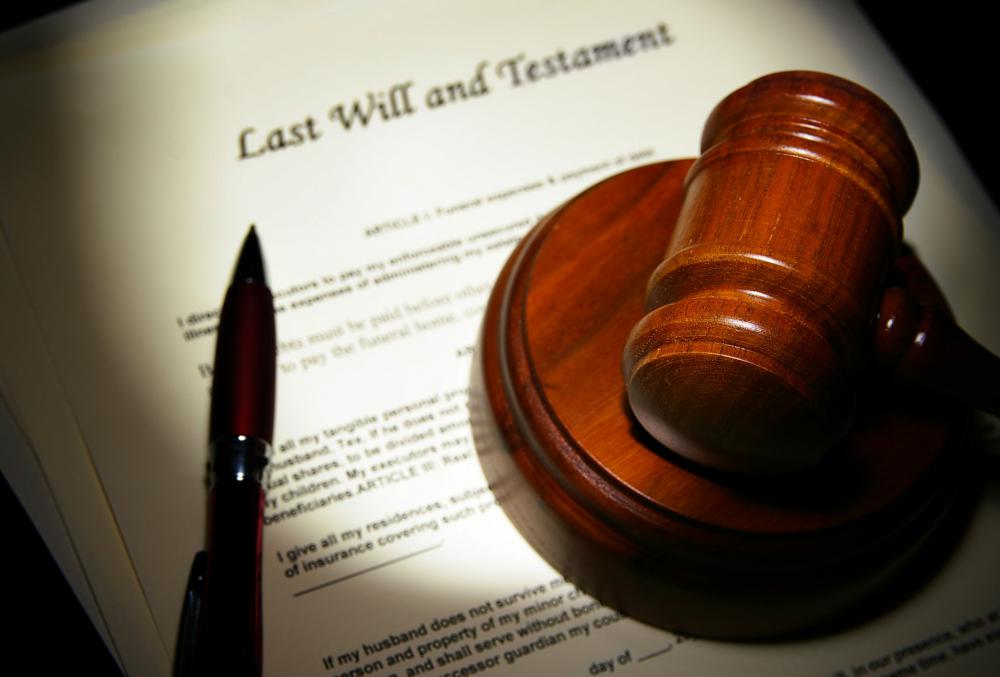At WiseGEEK, we're committed to delivering accurate, trustworthy information. Our expert-authored content is rigorously fact-checked and sourced from credible authorities. Discover how we uphold the highest standards in providing you with reliable knowledge.
What is Estate Law?
Estate law is the branch of legal matters that is concerned with dealing with distributing a person's property after they die. A person's estate is made up of all the property owned by them -- individually or in partnership with one or more others -- at the time of their demise and includes the following:
- real property (home, cottage, or other buildings)
- personal property (bank accounts, investment accounts, car, furniture,
- jewelry, and valuable collections)
- proceeds from a life insurance policy
- IRAs and annuities
- any debts owing at the time of death

If the deceased owned a business, his or her interest in that enterprise would also be included in the estate. The business interest is made up of any real estate owned by the business, equipment, tools, accounts receivable, and goodwill built up while the business was operating.
Estate law is concerned with planning for the day when the person's estate will pass to heirs under the individual's will and with estate planning. A person who owns anything of value would be well-advised to consult with a lawyer experienced in estate law matters to get advice to make a will. He or she will be able to advise the individual on how to transfer his or her assets in such as way as to minimize estate taxes and probate fees.

Contesting the terms of a will also falls under the umbrella of estate law. In order to contest a will, you must either be one of the named beneficiaries or someone who would have inherited at least a portion of the estate if the will were declared invalid. These interested persons can contest the validity of the will by alleging the person who made it (the testator) was not of sound mind or was unduly influenced by another individual to give the instructions contained in the document.

A will can also be contested under the grounds of duress -- the person being forced to sign the document under threat of harm -- or fraud. An estate law professional can draft a will that is less likely to be contested after the testator's death. He or she can also advise family members on whether they have legal grounds for contesting a will.
Estate law also deals with trusts as a way to deal with avoiding federal estate taxes. This legal option can be used to render a portion of the individual's estate tax exempt, which can only be considered a positive outcome.
AS FEATURED ON:
AS FEATURED ON:















Discuss this Article
Post your comments